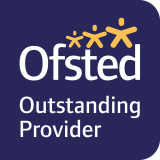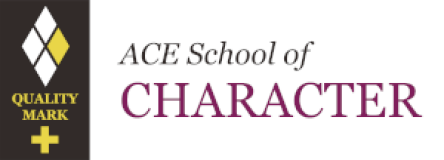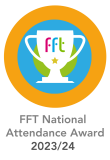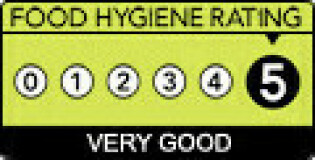Computer Science & ICT
Staff
Mrs Wright – Head of Department
Mr Ahmed – Progress and Achievement Computer Science
Mrs Ngwa – Progress and Achievement ICT
Mrs Sharma – Progress and Achievement KS3
Mrs Siddiq
Mr Landa
We believe that every student at Barking Abbey School should be able to use a variety of industry standard software and hardware. We want our students to develop the foundations to enable them to be discerning, life-long learners in an ever increasing fast moving industry through computational thinking and digital creativity. The Computing department aims to encourage students to become both independent enquirers and creative thinkers.
The Computing syllabus has been designed to cover the three main areas of Digital Literacy, Computer Science and Information Technology.
This course is designed to equip students with the logical and computational skills necessary to succeed at A-level, the workplace or beyond. It recognises the well-established methodologies of computing, alongside the technological advances which make it such a dynamic subject.
Computer Science and Information Technology are one of the fastest growing, sustainable sectors of the economy. The work is designed not only to challenge students to create solutions to key tasks and problems in the real world, but to encourage students to become both independent enquirers and creative thinkers.
In ICT and Computer Science lessons, students are taught how to become efficient users of digital technology, ranging from creating digital animations to programming and sequencing.
ICT and Computer Science are taught across all Key Stages at Barking Abbey School.
Our highly skilled staff have expertise across the wide range of emerging technologies, as well as a broad base in the more established areas of the subject.
Our qualifications concentrate on the use of ICT and Computing in the real world, equipping students with skills they will use in all walks of life.
Curriculum
KS5
At Key Stage 5 students can choose either A LEVEL Computer Science or BTEC LEVEL 3 certificate in ICT (EQUIVALENT TO 1 A LEVEL)
Course Outline
A LEVEL Computer Science
A level Computer Science allows students to gain an understanding of fundamental principles and concepts of computer science. It gives students the ability to analyse problems in computational terms and the capacity to think creatively innovatively, analytically, logically and critically.
Throughout this course there will be an emphasis on problem solving using computers, computer programming and algorithms, and the mathematical skills such as Boolean algebra used to express computational laws and processes.
A Level lessons are delivered using practical, hands-on methods where possible. Programming is not taught in isolation – it is applied to produce solutions that illuminate and clarify other aspects of theory relevant to the course.
Students will be exposed to several programming paradigms and languages – they will also be encouraged to explore additional options through self-study. Experience of Computer Science is required and we would expect students to have achieved at least a grade 6 in Mathematics at GCSE level and Grade B or Grade 5 or above in Computer Science. A passion for computer science is essential and we would be delighted to consider any student who is fascinated by computer technology and is willing to work hard and try their very best.
Course Overview
Component 01 - Computer systems – this component will introduce you to the internal workings of the Central Processing Unit (CPU), the exchanging of data, and also looks at software development, data types and legal and ethical issues.
• The characteristics of contemporary processors, input, output and storage devices
• Software and software development
• Exchanging data (How data is exchanged between different systems)
• Data types, data structures and algorithms
• Legal, moral, cultural and ethical issues.
Component 02 - Content of Algorithms and programming – you will understand what is meant by computational thinking, and understand the benefits of applying computational thinking to solving a wide variety of problems.
• Elements of computational thinking
• Problem solving and programming
• Algorithms
Component 03 - Programming project – you will analyse, design, develop, test, evaluate and document a program written in a suitable programming language for real users.
Assessment overview
Students must take all three components to be awarded the OCR A Level in Computer Science.
|
Component |
Marks |
Duration |
Weighting |
|
Computer systems 01 (Externally assessed) |
140 |
2 hours 30 mins |
40% |
|
Algorithms and programming – 02(Externally assessed) |
140 |
2 hours 30 mins |
40% |
|
Programming project-03 (Internally assessed and externally moderated) |
70 |
- |
20% |
AAQ IN IT: DATA ANALYTICS (EQUIVALENT TO 1 A LEVEL)
The Cambridge Advanced National in Data Analytics (Extended Certificate) at Level 3 is designed to give students a solid foundation in key data skills and prepare them for higher education or careers in IT and data-related fields. The course covers essential topics such as data analysis, data modelling, Big Data, and digital marketing, using tools like spreadsheets. It also helps students develop valuable transferable skills like critical thinking, communication, and problem-solving. Equivalent to one A-Level, this qualification can be combined with others to support a broad study program and offers a practical, academically focused route into the world of data.
Learners will take five units to achieve this qualification.
There are three mandatory units. These are:
- F200 Fundamentals of data analytics [75 hours] External Assessment
- F201 Big data and machine learning [70 hours] External Assessment
- F202 Spreadsheet data modelling [75 hours] Internal Assessment
The two internally units that are centre-assessed and moderated by OCR.
- F204 Data and the Internet of Everything (IoE) [70 hours]
- F206 Data and digital marketing [70 hours]
|
Year |
Unit |
Assessment |
|
Year 12 |
1. F200 Fundamentals of data analytics 2. F201 Big data and machine learning 3. F202 Spreadsheet data modelling |
External Assessment External Assessment Internal Assessment |
|
Year 13 |
1. F204 Data and the Internet of Everything (IoE) 2. F206 Data and digital marketing |
Internal Assessment Internal Assessment |
Assessment
Grading: Pass, Merit, Distinction. Assessment is a combination of internal and external assessments.
The overall assessment is divided between exams and coursework, with approximately 40% of the total hours allocated to exam-based modules and 60% to coursework-based modules.
"Computers themselves, and software yet to be developed, will revolutionise the way we learn."
Steve Jobs







